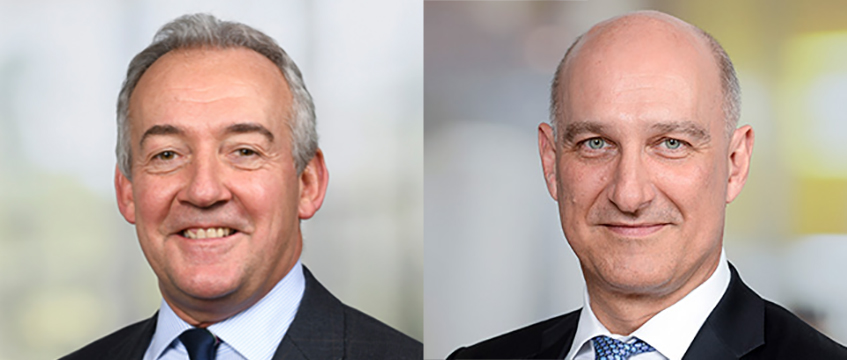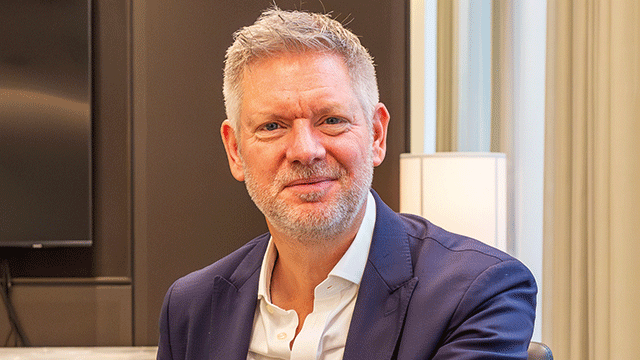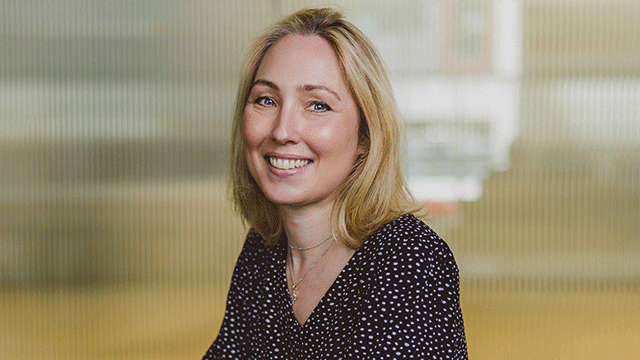RICS past, present and possible futures
MAINLY FOR STUDENTS To celebrate the 150th anniversary of the Royal Institution of Chartered Surveyors, Paul Collins outlines the origins of the RICS and its quest for an inclusive, diverse and future-proofed profession.
In 1858, a group of 49 surveyors, whose work included a range of land and property matters, came together to form a professional body called the Institution of Surveyors. In 1881, it was granted a royal charter – however, the “Royal” bit of the title was only bestowed in 1947.
Its first president was John Clutton, whose background was in his family’s rural land agency business. However, after moving to London in 1837, he built up the urban property side of the business.
MAINLY FOR STUDENTS To celebrate the 150th anniversary of the Royal Institution of Chartered Surveyors, Paul Collins outlines the origins of the RICS and its quest for an inclusive, diverse and future-proofed profession.
In 1858, a group of 49 surveyors, whose work included a range of land and property matters, came together to form a professional body called the Institution of Surveyors. In 1881, it was granted a royal charter – however, the “Royal” bit of the title was only bestowed in 1947.
Its first president was John Clutton, whose background was in his family’s rural land agency business. However, after moving to London in 1837, he built up the urban property side of the business.
The institution has grown from its humble, British-only beginnings to a membership of some 125,000 located worldwide – everywhere from Brazil to Vietnam (see www.rics.org/uk/about-rics/where-we-are/).
Gender balance in the RICS
The RICS started as an all-male body, and remained so until the Sex Disqualification (Removal) Act 1919 allowed women to join. The first qualified female surveyor was Irene Barclay. She qualified in 1922 and, along with fellow surveyor Evelyn Perry, ran her own practice until her retirement in 1950.
Sadly, over the near-century since Irene’s election, the percentage of female surveyors has remained starkly unbalanced, at only 13-14%. More positively, in 2014, the RICS elected its first female president, Louise Brooke-Smith, who is a planning and development surveyor. In 2016 Amanda Clack, a quantity surveyor, followed as president and championed the role of surveyors in infrastructure development. Kath Fontana, whose professional work is in facilities management, will become president in 2020.
Recently, in an election for new members of the RICS worldwide governing council, members voted in 15 women out of 33 available seats. One of its members, Sara Cameron (@CamSparkle on Twitter), is very active in promoting diversity and greater engagement of women in the profession.
There remains, however, a very real challenge to increase the number of women undertaking property-based courses. Undergraduate courses have a major gender imbalance, although postgraduate courses do better. New initiatives such as the RICS Inspire programme is really helping but much more needs to be done. Inspire has involved facilitators running workshops with year 9 and 10 school students (both genders), encouraging them to consider surveying as a future job. So far this has been rolled out to more than 40 UK schools, but the RICS is looking for further support from its members (see www.rics.org/uk/careers/employers/inspire-programme).
Wider diversity
Alongside the gender challenge, the RICS has also made great strides in celebrating and supporting more diversity in terms of black, Asian and minority ethnic and lesbian, gay, bisexual, and transgender issues. This is quite remarkable, compared with what might have been the case even as little as 20 years ago. What was once both a matter of disguised or explicit discrimination is now being positively addressed by the profession, industry leaders and impassioned individual members. Research suggests, however, that many LGBT professionals feel their sexuality or gender still presents a barrier to their career progression.
As an example of active support, the RICS-sponsored Freehold (https://united-kingdom.taylorwessing.com/en/services/services/level3/freehold) took part in this year’s Pride march in London. Freehold supports and provides a networking forum for LGBT real estate professionals, including property lawyers, developers and architects. Freehold has more than 1,000 members and, with the backing of LGBT charity Stonewall, aims to help champion equality in attitudes, behaviours and treatment.
Readers may recall that the last article in this column was on the new mandatory Assessment of Professional Competence competency, Inclusive Environments. However, there is another mandatory APC competency, previously named Teamworking, that has been amended to address inclusiveness and diversity: Diversity, Inclusion and Teamworking.
This must be passed by all candidates to level 1 and went live in August 2018. Level 1 applicants are now expected to “demonstrate knowledge and understanding of the principles, behaviour and dynamics of successfully working in a team”. Examples of knowledge in this level are:
How team members are selected and appointed.
The role played by the various team members.
The importance and business value of diversity in a team.
Formal communication processes within the team.
Inclusive communications.
How partnering and collaborative working affects the team.
Internal diversity and inclusion policies, including any applicable to non‑discrimination or anti-harassment in the workplace.
Unconscious bias.
Supply chain management.
Relevant legislation within your area of practice.
In terms of the RICS’ commitment to diversity and inclusion more generally, you can find out more at www.rics.org/uk/about-rics/responsible-business/diversity-and-inclusion/.
RICS futures
For the past couple of years, the RICS has been increasingly asking itself questions about “where are we going” as a profession and “how are we going to get there”. In order to engender debate, it produced a short video in 2015 that set out some of these challenges. This is worth viewing if you haven’t done so already. It has had more than 40,000 views and can be found at: www.youtube.com/watch?v=t6hPnE3giXw.
More recently, it has opened a period of consultation on the future of the profession (see www.rics.org/uk/news-insight/latest-news/news-opinion/the-future-of-the-profession/).
In setting the scene for the consultation, the RICS believes that: “Fundamental disruption to long-established status quos within the built and natural environments is changing the industry at a rate faster than ever before…
“We are seeing a digital revolution, a climate emergency and a demographic time bomb. Urbanisation is the most striking phenomenon of the last century, with the world’s urban population rising by an average of 65m people a year over the last three decades. Globalisation has accelerated more rapidly than anyone could have predicted. All these megatrends bring with them huge social and economic consequences.
“Although these changes come with vast opportunities, there is a real risk that if we don’t seize them now, we will sleepwalk into a crisis we all foresaw.”
As part of this changing landscape, the RICS asks:
1. What new business models are we seeing as the sector continues to evolve?
2. What opportunities will new technology create for professionals within the built and natural environment?
3. What skills and competencies are essential now and into the future for a chartered surveyor?
4. What will be required in terms of education to ensure the profession attracts and retains the best talent? What can professionals/employers/the RICS do now in response to the need for new skillsets?
5. What else can the RICS do to support both RICS professionals and serve the public interest in the new data‑driven market?
The RICS will be publishing its findings before the end of the year, but if you have any thoughts on the questions, please let the RICS know – or contact me as a member of its governing council.
Future needs for knowledge, skills and attributes
Questions 2 and 5 above address the challenge of an increasingly data-driven market and the related onslaught of artificial intelligence (AI), explored by Richard and Daniel Susskind, in their book The Future of Professions: How Technology Will Transform the Work of Human Experts.
In essence, they set out two possible futures. The first is about tech and AI making the work of a professional more efficient and effective. The second is that the traditional consumers of professions will have the increasing capability to do things for themselves, making much of what professionals offer redundant. Think about the increasing extent to which people self-diagnose themselves using online medical information, rather than seeing a doctor.
Much expert knowledge and associated skills may, on the other hand, be likely to be undertaken by I.M.A.Robot ARICS. Recent RICS research suggested that nearly 90% of core surveying tasks would be affected by AI (see www.isurv.com/info/390/features/11433/technology_future_impact_on_surveying).
This kind of future will mean acquiring new and better skills in the management, analysis and interpretation of information and big data. Alongside this, however, might be the need to develop stronger attributes such as vision, leadership, non-siloed thinking, initiative, creativity, teamworking – and particularly better inter-disciplinary working – empathy, scrupulous ethical behaviour and, above all, wisdom. The ability to discern, draw together and judge, will be prized ahead of more knowledge.
In summary, what might be needed for the future? A focus on developing wisdom as much as skills and knowledge, for a profession that is committed to inclusiveness in al its forms and, as the RICS constitution states, works “for the public advantage in the UK and in any other part of the world”.
Mainly for Students is edited by Paul Collins, a senior lecturer at Nottingham Trent University. He welcomes suggestions for the column and can be contacted at paul.collins@ntu.ac.uk











